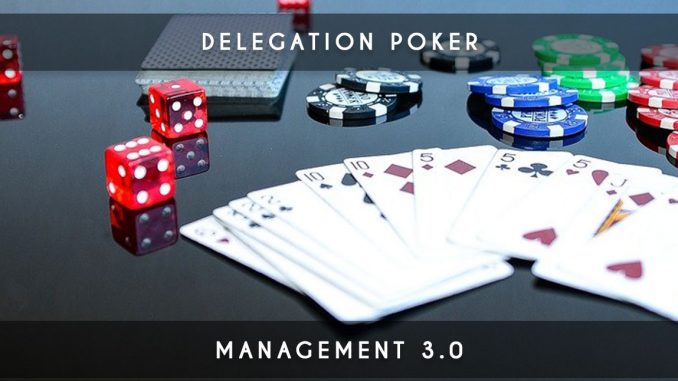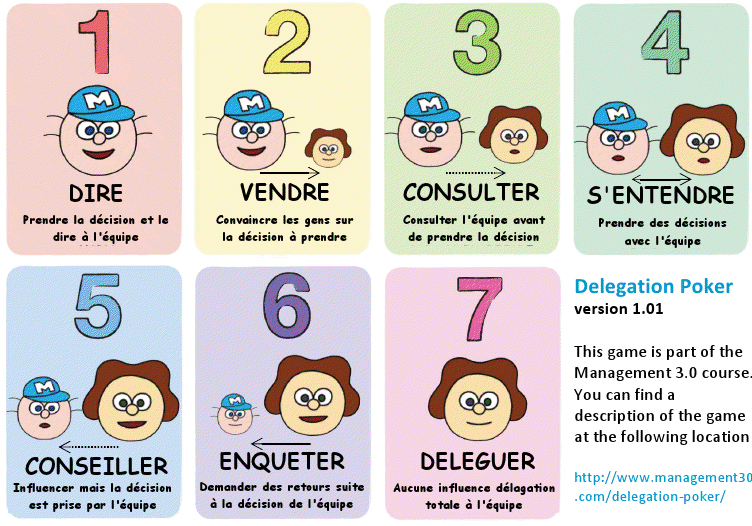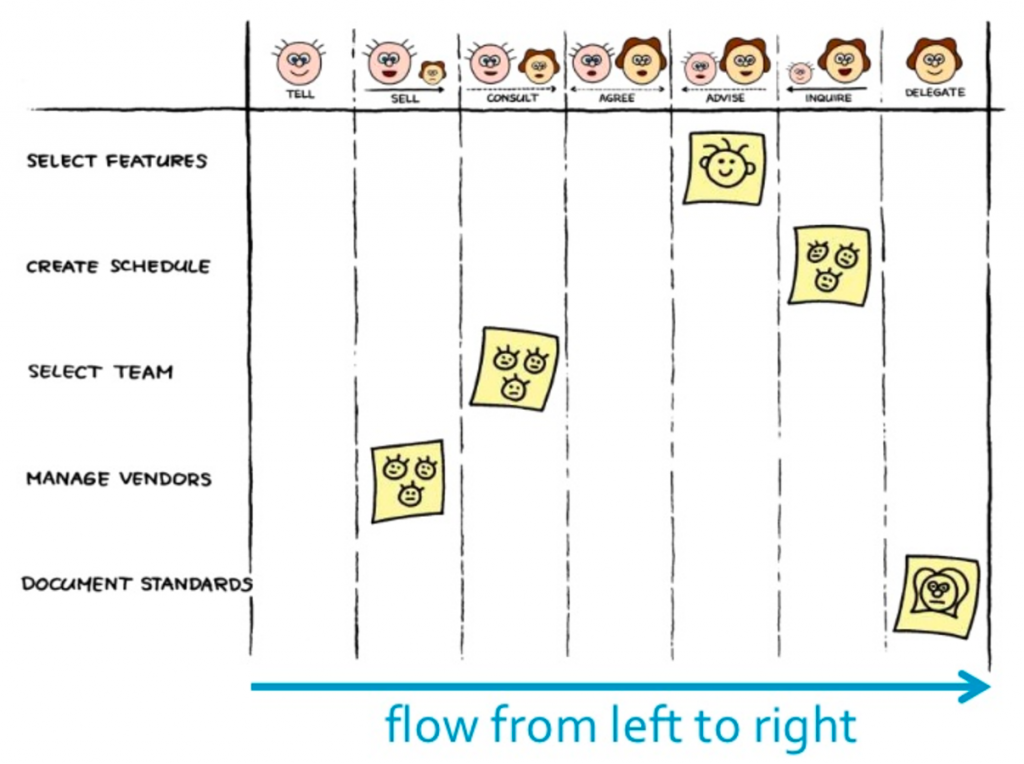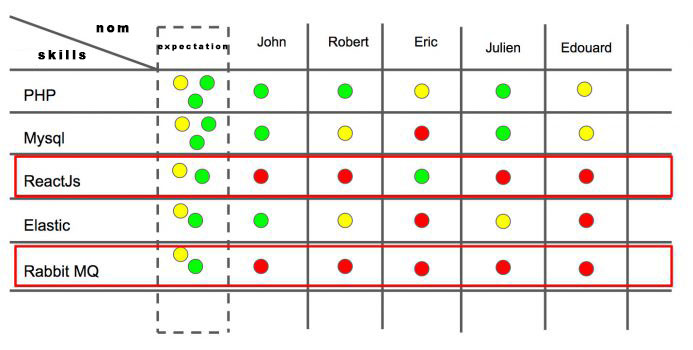
Management 3.0 purposes to use Delegation Poker to delegate manager tasks to motivated team members to do them. This method is interesting because the idea is not to ask the manager to delegate without agreement but to delegate what the team wants to take care of.
Management 3.0 uses many games to improve the overall management of teams. We had already seen another very interesting practice of Kudo Cards in the past that you can read.
Article: Kudo Cards: congratulations between us
Material required for the Delegation Poker
To make a Delegation Poker, you can download the cards on the website of the author Jurgen Appelo or reproduce them yourself. There are also card games that you can buy on the internet.
Here’s what this card game looks like:

On the way to do, I also advise you to have a table or window on which you can do the exercise. I’ll let you guess that post’it and markers will be of great help to you.
Philosophy of the delegation
Management 3.0 considers that delegation is not something binary. It is not a dictator who will impose on the people what he will have to do. Team members will set up some delegations and only support those they think they can handle.
Indeed, depending on the context, some delegations are not so simple and can not be taken directly by some members of the team.
Conduct of the delegation session poker
Nous allons réunir les 3 à 7 membres de l’équipe (une équipe agile) dans une pièce pour réaliser l’exercice. Nous allons leur présenter les 7 niveaux de délégations possibles :
- Dire : le manager prendra la décision et informera l’équipe de la décision prise
- Vendre : le manager prendra la décision mais il tentera de convaincre l’équipe que la décision prise est la bonne
- Consulter : le manager prendra la décision après avoir laissé l’équipe s’exprimer sur le sujet ; la décision se prendra en résultat de cette discussion d’équipe.
- S’entendre : le manager prendra la décision en accord avec l’équipe
- Conseiller : le manager tentera d’influencer la décision prise par l’équipe elle même mais ne pourra pas prendre lui même la décision.
- Enquêter : le manager laissera l’équipe prendre la décision et enquêtera sur la décision et les motivations de celle-ci.
- Déléguer : le manager n’aura aucune influence sur la décision qui reviendra à 100% à l’équipe.
L’équipe et son manager détermineront ensemble la liste des points sur lesquels l’ensemble envisage d’éventuelles délégations. En example, nous pourrions avoir des décisions sur :
- la gestion de projet
- les outils à utiliser
- la stratégie fonctionnelle du produit
We will bring together the 3 to 7 team members (an agile team) in one room to do the exercise. We will present to them the 7 levels of possible delegations:
- Say: the manager will make the decision and inform the team of the decision taken
- Sell: the manager will make the decision but he will try to convince the team that the decision is the right one
- Consult: the manager will make the decision after letting the team express themselves on the subject; the decision will be taken as a result of this team discussion.
- Agree: the manager will make the decision in agreement with the team
- Adviser: the manager will try to influence the decision taken by the team itself but can not make the decision itself.
- Investigate: The manager will let the team make the decision and investigate the decision and motivations of the team.
- Delegate: the manager will have no influence on the decision which will be 100% from the team.
The team and its manager will jointly determine the list of points on which the everybody envisages possible delegations. For example, we could have decisions on:
- project management
- the tools to use
- the functional strategy of the product
The Authority Board of Delegation Poker
To facilitate this exercise, I advise you to make a small simple board called the Authority Board representing the levels of delegation and the types of delegations purposed. This board can also have the advantage to evolve in the future.

We must let the team decide together on the level of delegation as well as the members who will take charge of the delegation. At each point to delegate, we will ask them to tell the delegation in a story so that the need for delegation is well understood.
As the board above shows, you can have post’it that represent the entire team or post’it that represent a particular member. In some cases, it will not be possible to delegate to the entire team because some of them will not have the required skills for that.
Most importantly, the board must reflect the result of the entire team.
When all the points have been chosen by the team, you have finished your session of Delegation Poker. You can redo a session as soon as the need is felt.
Conclusion Delegation Poker
I can say you I really like the delegation Poker because we take the decision to delegate together; however, we do not force anyone to take responsibility. We often have more motivated people through this way of delegating.
Second illustration of: Axel Villechalane (agile coach)




1 Trackback / Pingback